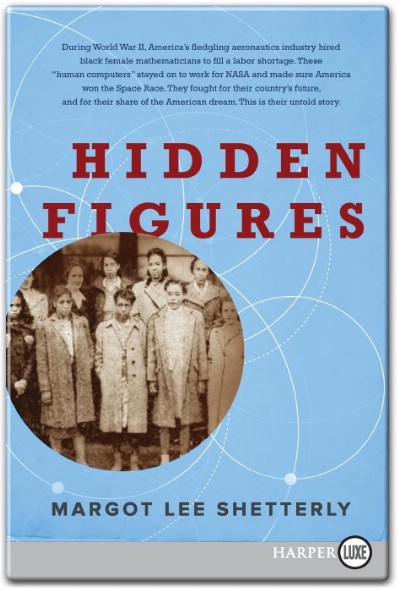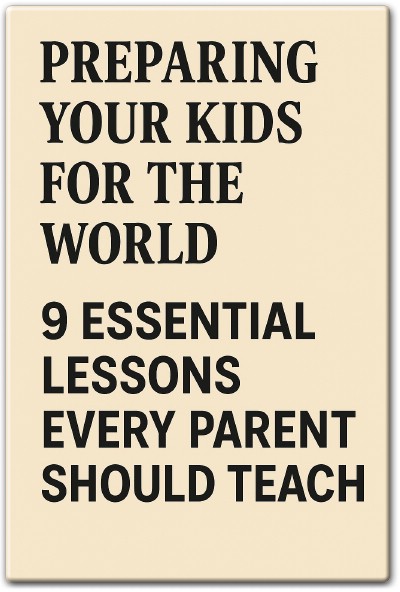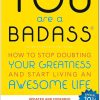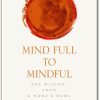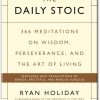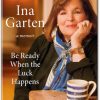
Book Summary Contents
- 1 Introduction: Why Thrive by Arianna Huffington Matters Today
- 2 Thrive: The Third Metric to Redefining Success and Creating a Life of Well-Being Wisdom and Wonder by Arianna Huffington Quotes
- 3 What Is the Third Metric of Success?
- 4 Thrive by Arianna Huffington Summary
- 5 Pillar 1: Well-Being—The Foundation of a Thriving Life
- 6 Pillar 2: Wisdom—Beyond Knowledge to Meaningful Insight
- 7 Pillar 3: Wonder—Finding Joy and Awe in the Everyday
- 8 Pillar 4: Giving—The Spiritual Core of Thriving
- 9 The Cost of Ignoring Balance: Huffington’s Wake-Up Call
- 10 Practical Advice to Start Thriving Today
- 11 5 Questions the Book Answers
- 12 About the Author: Arianna Huffington
- 13 Conclusion: Start Redefining Success Today
- 14 Get The Book Thrive: The Third Metric to Redefining Success and Creating a Life of Well-Being Wisdom and Wonder by Arianna Huffington
- 15 References :
Introduction: Why Thrive by Arianna Huffington Matters Today
In a world driven by deadlines, prestige, and financial success, burnout has become a badge of honor. But what if true success isn’t found in relentless hustle but in balance, presence, and joy? That’s the bold question Arianna Huffington answers in her groundbreaking book Thrive.
In this deep-dive Thrive by Arianna Huffington Summary , we explore her revolutionary call to redefine success—not by wealth and power, but through well-being, wisdom, and wonder. Drawing from her personal burnout story and research-backed insights, Huffington offers readers a transformative third metric of success that nurtures the mind, body, and soul.
Thrive by Arianna Huffington Summary unpacks the major pillars of her philosophy and provides actionable steps for applying her insights. Whether you’re chasing your next promotion or simply want a more meaningful life, this guide reveals why Thrive is more relevant than ever.
Thrive: The Third Metric to Redefining Success and Creating a Life of Well-Being Wisdom and Wonder by Arianna Huffington Quotes
- We think, mistakenly, that success is the result of the amount of time we put in at work, instead of the quality of time we put in.
- If you take care of your mind, you take care of the world.
- I do not try to dance better than anyone else. I only try to dance better than myself.
- And whenever I’d complain or was upset about something in my own life, my mother had the same advice: “Darling, just change the channel. You are in control of the clicker. Don’t replay the bad, scary movie.
- Have you notices that when we die, our eulogies celebrate our lives very differently from the way society defines success?
- It’s not ‘What do I want to do?’, it’s ‘What kind of life do I want to have?
- Treat people like family, and they will be loyal and give their all.
- The greatest weapon against stress is our ability to choose one thought over another.
- really true that while we grow physically by what we get, we grow spiritually by what we give. Ever since I became a mother, I’ve
What Is the Third Metric of Success?
Arianna Huffington argues that the current model of success—centered around money and power—is outdated and harmful. Her book introduces a “Third Metric,” consisting of:
- Well-Being
- Wisdom
- Wonder
- Giving
Each element offers a path to a richer, more fulfilling life. Huffington insists that thriving means caring for our internal world just as much as our external accomplishments.
Why This New Definition Matters
- Rising levels of stress, anxiety, and burnout signal a societal crisis.
- Success without happiness or health is hollow.
- By redefining success, we redefine our lives.
Thrive by Arianna Huffington Summary
Pillar 1: Well-Being—The Foundation of a Thriving Life
At the heart of Huffington’s philosophy is well-being. She recounts how she collapsed from exhaustion despite being at the peak of her career. That moment became a wake-up call: health cannot be sacrificed for success.
Key Practices to Cultivate Well-Being
- Prioritize Sleep: Huffington calls sleep “a performance enhancer.” Sleep deprivation impairs decision-making and emotional stability.
- Practice Mindfulness: Meditation, yoga, and breathing exercises help reset the mind and body.
- Eat & Move Well: Nutrition and regular physical activity are essential to sustaining energy and clarity.
- Digital Detox: Unplugging from devices restores mental peace and presence.
“Sleep is not optional—it’s the foundation of health and success.” — Arianna Huffington
Pillar 2: Wisdom—Beyond Knowledge to Meaningful Insight
Wisdom is about applying knowledge with intention and empathy. In a data-saturated world, Huffington argues, what we truly lack is reflection.
How to Cultivate Wisdom Daily
- Reflect Daily: Take moments to pause and review your actions and goals.
- Embrace Emotional Intelligence: Understand your emotions and those of others.
- Trust Your Intuition: Combine gut instinct with rational thinking.
- Let Go of Perfection: Mistakes are often the best teachers.
Wisdom vs Intelligence
| Intelligence | Wisdom |
|---|---|
| Acquiring information | Understanding meaning |
| Fast decision-making | Thoughtful discernment |
| Outcome-focused | Value-centered choices |
Pillar 3: Wonder—Finding Joy and Awe in the Everyday
Huffington describes wonder as the magic ingredient that keeps life vibrant. It’s about noticing the world, being present, and connecting with our childlike curiosity.
Simple Ways to Reignite Wonder
- Spend Time in Nature: Nature naturally induces awe and calm.
- Engage in Creative Play: Art, music, and literature stimulate joy.
- Be Present: Turn off distractions to fully experience each moment.
- Seek Inspiration: Listen to stories that uplift and transform.
Wonder isn’t a luxury—it’s a powerful antidote to cynicism and stress.
Pillar 4: Giving—The Spiritual Core of Thriving
Though not always listed among the three pillars, giving is a key component in Huffington’s model. She argues that we grow spiritually by giving, not getting.
The Transformative Power of Giving
- Boosts Well-Being: Giving activates the brain’s pleasure centers.
- Strengthens Relationships: Generosity creates deeper social bonds.
- Builds Purpose: Giving gives life meaning beyond the self.
Whether through time, love, or resources, giving is essential to a life that thrives.
The Cost of Ignoring Balance: Huffington’s Wake-Up Call
At one point, Huffington was working nonstop—until she fainted from exhaustion and broke her cheekbone. That incident forced her to question everything about her lifestyle and ambitions.
Why Burnout Is a Silent Epidemic
- It’s normalized in high-performance cultures.
- It silently deteriorates health and relationships.
- It results in poor decisions and lack of joy.
Huffington’s personal story is a cautionary tale for anyone who equates nonstop effort with success.
Practical Advice to Start Thriving Today
Huffington doesn’t just theorize—she offers concrete steps to live the Thrive life:
- Start a Gratitude Journal: Write down 3 things you’re grateful for daily.
- Schedule Tech-Free Time: Create zones or hours with no screens.
- Sleep Hygiene: Set a sleep schedule, darken your room, and avoid blue light.
- Say No More Often: Protect your time and energy.
- Volunteer Weekly: Even small acts of kindness yield big returns.
5 Questions the Book Answers
- What is the true meaning of success beyond wealth and power?
- How does well-being impact our professional and personal performance?
- Why is wisdom more essential than knowledge in modern life?
- How can wonder transform our daily routine into a joyful experience?
- What practical steps can we take to thrive, not just survive?
About the Author: Arianna Huffington
Greek-born Arianna Huffington is the co-founder of The Huffington Post and one of Time’s Most Influential People. A best-selling author of 15 books, she’s a vocal advocate for wellness in the workplace. Her follow-up book, The Sleep Revolution, furthers her mission to awaken the world to the importance of rest and balance. Her thought leadership and personal transformation story make her a compelling authority on redefining modern success.
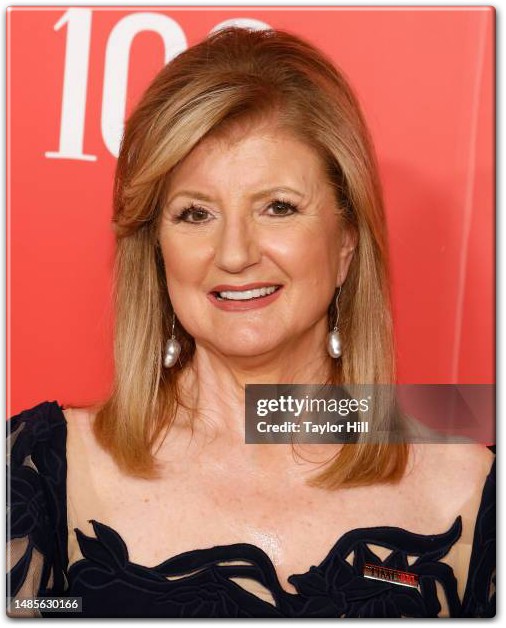
Conclusion: Start Redefining Success Today
Thrive is a wake-up call for anyone caught in the endless loop of doing over being. Arianna Huffington’s wisdom urges us to pause, breathe, and reconnect with what truly matters. Through well-being, wisdom, wonder, and giving, she offers not just a new definition of success, but a roadmap to a more meaningful life.
Takeaway: Don’t just aim to succeed—aim to thrive. Prioritize sleep, nurture your spirit, and rediscover the magic in the everyday.
Ready to thrive? Start by embracing one new habit today—whether it’s getting more rest, journaling your gratitude, or simply unplugging for an hour. Your future self will thank you.
Try this strategy today: Redefine one measure of your success that doesn’t involve your job title or paycheck.
![]()
Get The Book Thrive: The Third Metric to Redefining Success and Creating a Life of Well-Being Wisdom and Wonder by Arianna Huffington
>> Get Your Copy Of The Book <<
![]()
References :
- Amazon’s book page
- Goodreaders’s book page
- Author’s image source: GettyImages.com
- Book Cover: Amazon.com





